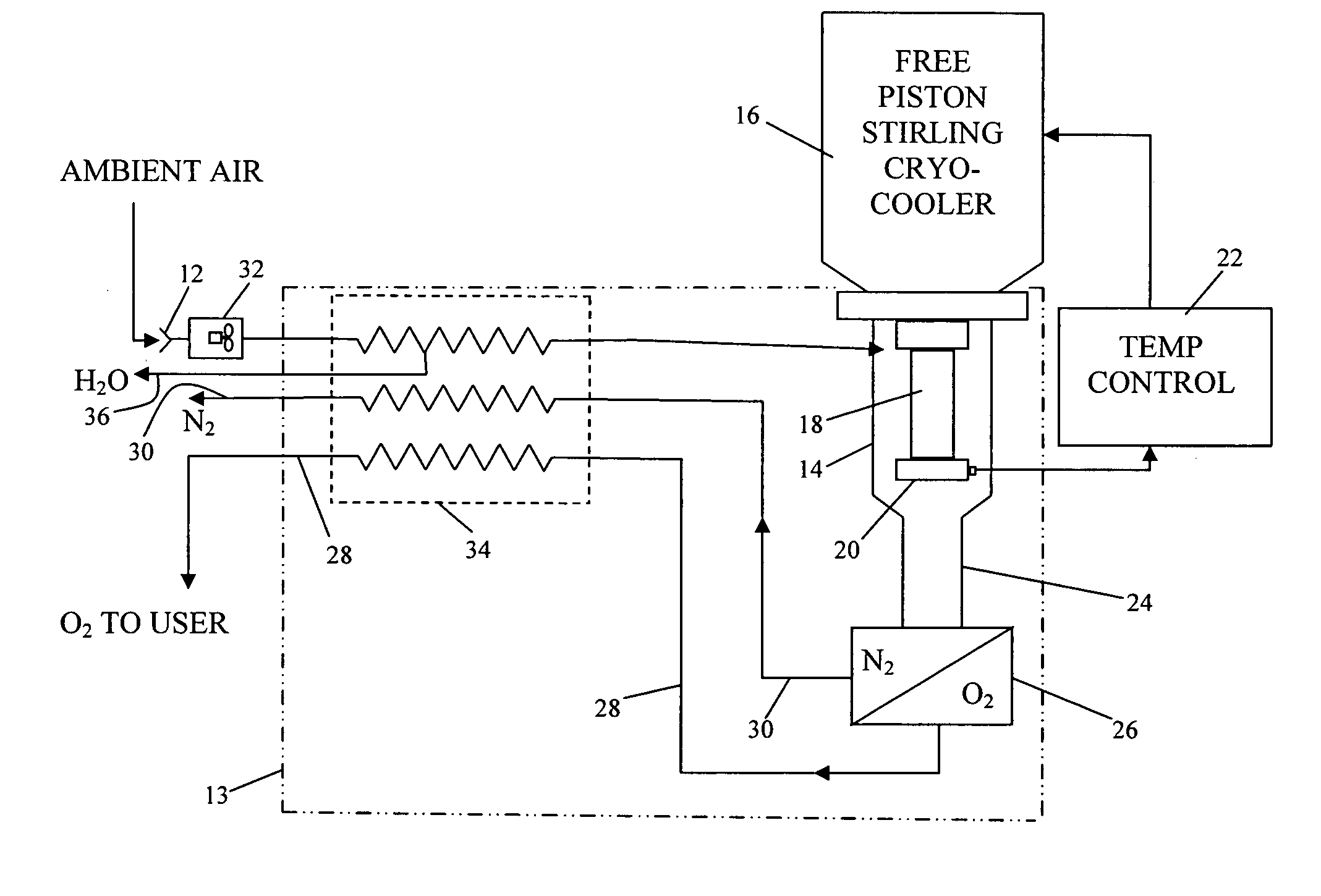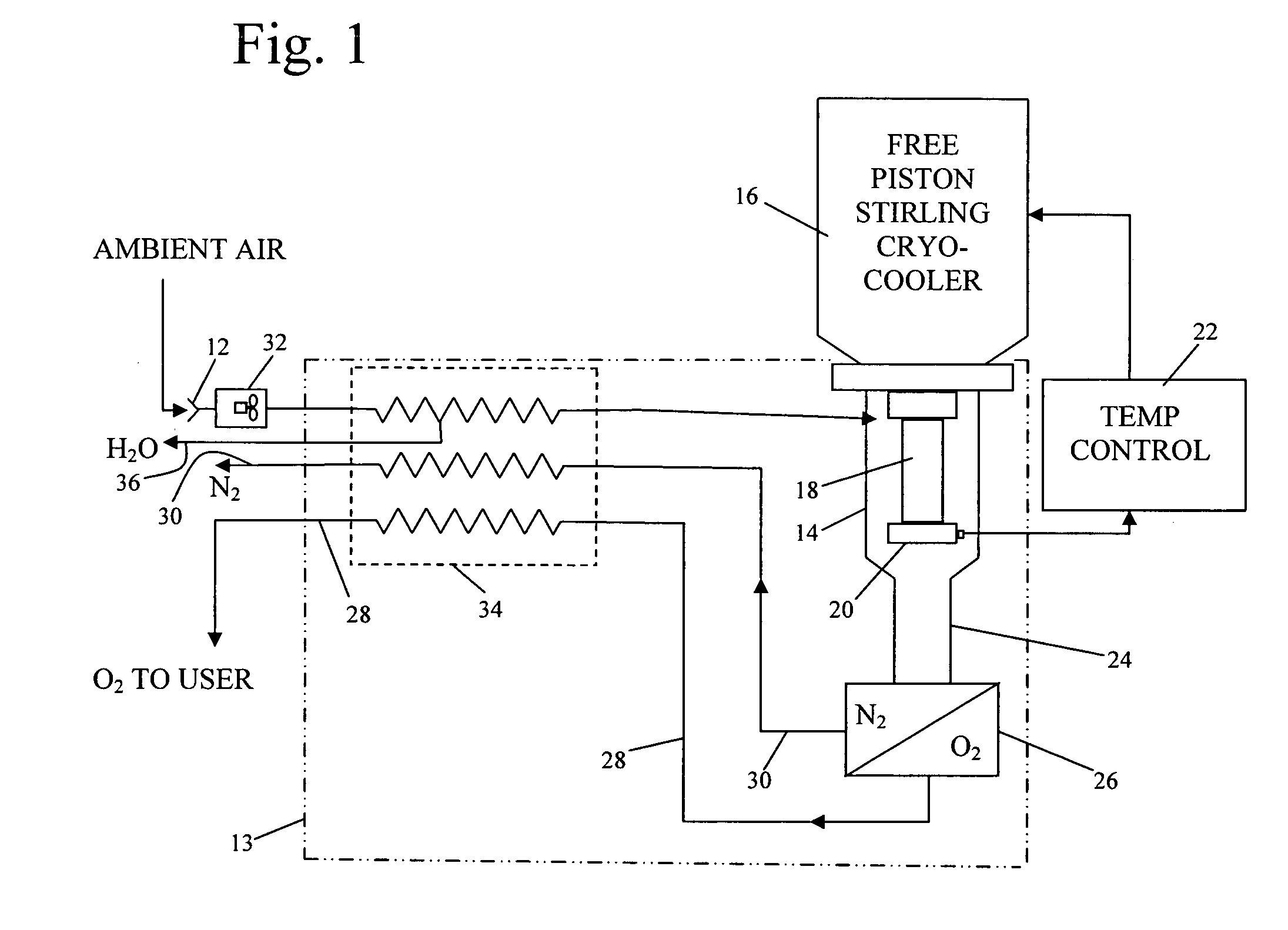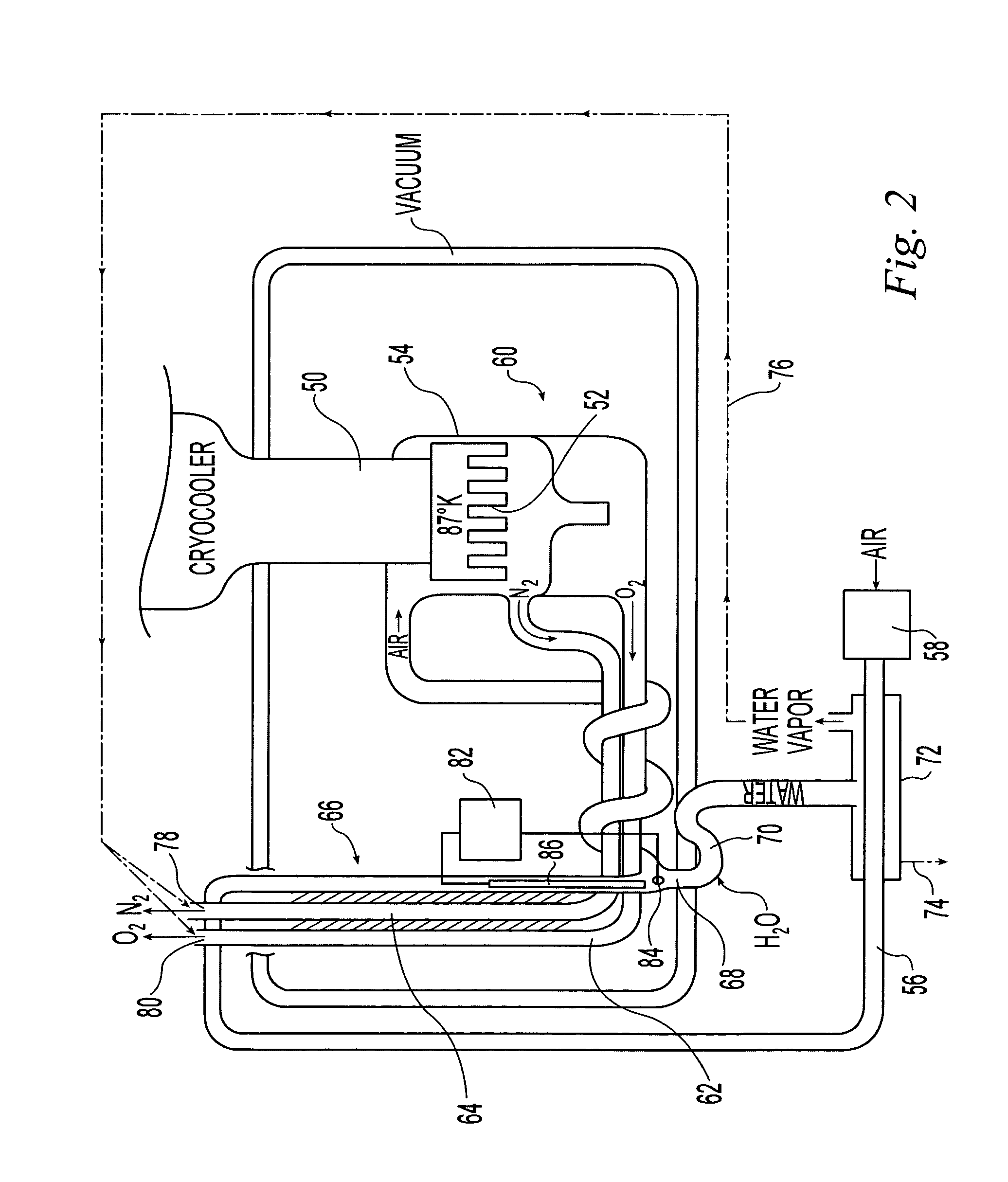Energy efficient, inexpensive extraction of oxygen from ambient air for portable and home use
a technology of ambient air and oxygen extraction, which is applied in the field of equipment and methods for extracting oxygen from ambient air, can solve the problems of difficulty in transporting oxygen sources, reducing the cost of oxygen, and wasting energy remaining,
- Summary
- Abstract
- Description
- Claims
- Application Information
AI Technical Summary
Benefits of technology
Problems solved by technology
Method used
Image
Examples
Embodiment Construction
[0019]FIG. 1 is a schematic diagram of an embodiment of the invention illustrating its basic principles. The invention separates oxygen from air in a process that operates entirely at essentially atmospheric pressure because it uses no compressor. The invention outputs a mixture of the ordinary gas components found in air but the mixture is oxygen enriched, that is the proportion of oxygen is substantially greater than the proportion found in air entering the system. The enriched oxygen mixture is supplied at atmospheric pressure ready for use.
[0020] Referring to FIG. 1, an ambient air input 10 includes an ambient air inlet passage leading from an opening 12 for inputting atmosphere air, through an insulating enclosure 13, to a vessel 14 for confining gases. A free piston Stirling cryocooler 16, of a type well known in the art, has its cold finger 18 extending into the vessel 14 to provide a cooled surface 20. Oxygen in air that is incoming through the air input 10 is directly cond...
PUM
 Login to View More
Login to View More Abstract
Description
Claims
Application Information
 Login to View More
Login to View More - R&D
- Intellectual Property
- Life Sciences
- Materials
- Tech Scout
- Unparalleled Data Quality
- Higher Quality Content
- 60% Fewer Hallucinations
Browse by: Latest US Patents, China's latest patents, Technical Efficacy Thesaurus, Application Domain, Technology Topic, Popular Technical Reports.
© 2025 PatSnap. All rights reserved.Legal|Privacy policy|Modern Slavery Act Transparency Statement|Sitemap|About US| Contact US: help@patsnap.com



